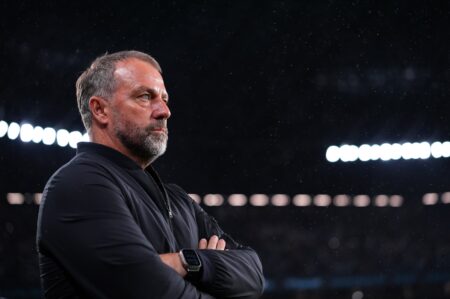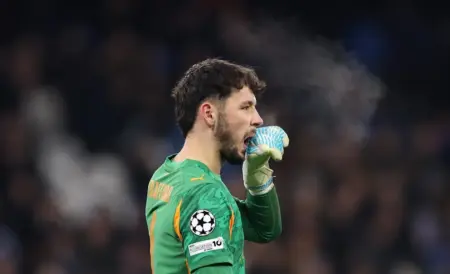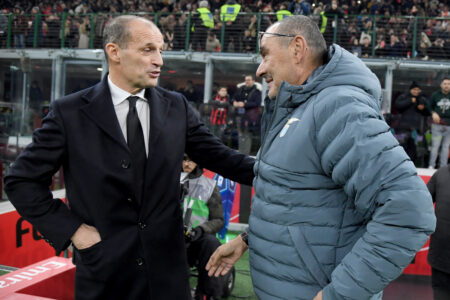The Iron Fist of Sir Alex Ferguson: A Myth Unraveled
Sir Alex Ferguson, now 83, is widely regarded as the most successful manager in football history. His reign at Manchester United saw him secure 13 Premier League titles and two Champions League victories, cementing his legacy. Ferguson’s fiery temper and the infamous "hairdryer treatment" are well-documented, leading many to believe he ruled Old Trafford with an iron fist. However, this perception belies a more nuanced and compassionate side to the legendary manager, as revealed by many of his former players and even rival managers.
The Iron Fist: A Closer Look
The image of Ferguson as a tyrannant is partly due to his confrontational nature. Players like Roy Keane and David Beckham have shared tales of explosive confrontations, with Keane eventually leaving the club and Beckham famously having a boot kicked at him. These incidents contributed to the myth of the "hairdryer treatment," where Ferguson would reportedly blast his players with a torrent of abuse. However, as Ferguson himself admitted, this image is largely exaggerated.
When asked if his players were afraid of him, Ferguson responded, "I hope not. There’s a lot of myth attached to that. In training, there’s nothing but praise for every player. Nothing but positives." He further clarified, "The hairdryer is part of the myth and the circus. It’s completely exaggerated, like throwing the tea cups. But I’m a confrontational character. I don’t like people arguing back to me. I think that’s where the hairdryer treatment came from."
A Compassionate Side
Behind the scenes, Ferguson was much more than just a fiery taskmaster. Many former players have spoken about his kind-hearted and understanding nature. Cristiano Ronaldo, in particular, has shared deeply personal stories that highlight Ferguson’s compassionate side. When Ronaldo’s father was critically ill in 2005, Ferguson showed remarkable empathy.
Ronaldo recounted, "When my dad was sick in London and was in hospital—very bad, in a coma—I had a conversation with [Ferguson]. I said, ‘Boss, I don’t feel good. We are in a key moment in the league and the Champions League, but I say, ‘Boss, I don’t feel good. I want to see my dad.’ [He said] ‘Cristiano, you want to go one day, two days, one week, you can go. I’m going to miss you here because you know you are important, but your dad [comes] first.’ When he told me that, I thought, ‘This guy’s unbelievable.’"
Ronaldo’s relationship with Ferguson goes beyond mere professional respect. He often refers to Ferguson as his "football father," emphasizing the mentorship and support he received. "Sir Alex is like a father in football for me. He was the main key for me to be in the position that I am, he’s an unbelievable person," Ronaldo has said.
A Family Atmosphere
Ferguson’s ability to create a family atmosphere at Manchester United was another crucial aspect of his management style. He often invited players to his home for meals and social gatherings, fostering a sense of camaraderie and mutual respect. Ronaldo fondly remembers these moments, saying, "He invites everyone to come for lunch, come for tea… an English cup of tea! It was a family with him. He was a football father for me."
This family-like environment extended beyond the pitch. Giuseppe Rossi, despite a relatively brief and unremarkable career at Old Trafford, shared a touching story about Ferguson’s enduring support. Rossi is organizing a farewell match in Florence, and Ferguson has agreed to coach the team, treating Rossi with the same respect and care he showed to stars like Ronaldo. "I did little at United but he treats me like Cristiano Ronaldo, who has scored 1,000 goals," Rossi said. "Ferguson will be there (at my farewell match) as a coach. He was my first coach, I signed when I was 17. I only did three years with him and played little, but he immediately said yes and this shows what kind of person he is."
Beyond the Rivalry: A Man of Principle
Ferguson’s kindness and support extended even to his rivals. Former rival manager David Moyes revealed that Ferguson would often reach out to fellow managers during difficult times, offering words of encouragement and support. Moyes, who succeeded Ferguson at Manchester United, recalled, "Sir Alex was great at phoning managers when things weren’t good and wanting to help. He was competitive but also someone who thought about others."
This anecdote underscores Ferguson’s broader character. Despite his competitive nature, he was a man of principle and empathy, willing to lend a helping hand even to those he competed against. His recommendation of Moyes as his successor further cements his legacy as a mentor and leader who thought beyond his own success.
A Unique Management Style
Ferguson’s management style was unique and multifaceted. While he was known for his strict discipline, he also had a knack for understanding the human side of his players. Nani, who played under Ferguson from 2007 to 2013, revealed that Ferguson would sometimes turn a blind eye to players’ indiscretions, especially during special occasions like Christmas and New Year. "If I had the next day off, for example, then I could have some fun…on special days like Christmas or New Year – no one in England cares about that," Nani said. "On New Year, we could even go to training drunk and the coach didn’t care about it. That’s the side of [Sir Alex] that knew how to deal with the players and had the perception to say: this day is special, I can’t make demands."
Nani’s account highlights Ferguson’s ability to balance strictness with flexibility, creating an environment where players felt trusted and respected. "It was amazing. He knows how to deal with the player, whether they are older or younger. He knows how to manage their professional career and the human being. With him I can say that I gained a unique experience and maturity because they were very important phases of my life. I needed to grow up really fast, to learn and deal with that culture and the club culture."
Conclusion: A Legendary Legacy
Sir Alex Ferguson’s legacy at Manchester United is one of unparalleled success, driven by a combination of strict discipline and genuine compassion. While the myth of the "hairdryer treatment" may have captured the public’s imagination, the reality is that Ferguson was a complex and deeply human manager. His ability to create a family atmosphere, show empathy, and support his players in both good times and bad is what truly set him apart. His legacy is not just about the trophies and titles, but about the profound impact he had on the lives of his players and the broader football community.











